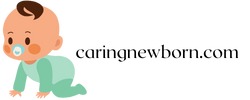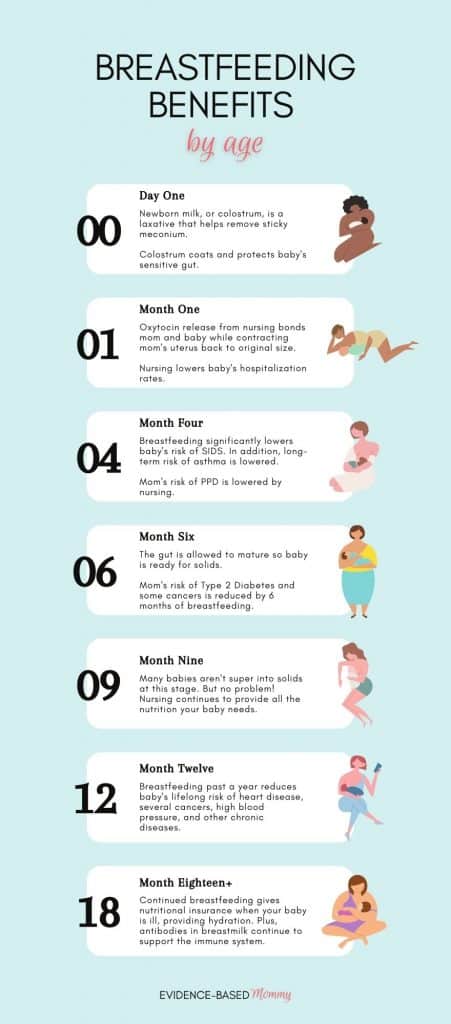Breastfeeding is a natural process that has many benefits for both mothers and babies. While many people know the basics, there are numerous advantages of breast milk that are less commonly discussed. This article will cover these lesser-known benefits, providing valuable insights for new parents. From nutritional aspects to health benefits, understanding the full scope of breast milk’s advantages can help in making informed choices for your child’s health.
Rich Nutritional Profile of Breast Milk
Breast milk contains all the essential nutrients needed for a baby’s growth and development. It is perfectly tailored to meet an infant’s needs. The composition of breast milk changes over time to suit the growing baby, providing exactly what they require at different stages. For example, colostrum, the first milk produced after birth, is rich in proteins and antibodies. This helps build a newborn’s immune system.
Would you like to see this content of ours Eye Cleaning Tips for Newborns
Vitamins and Minerals
Breast milk provides a range of vitamins and minerals that are crucial for development. It is rich in vitamin D, which helps in calcium absorption, promoting strong bones and teeth. Iron is also present in breast milk, though in lower amounts compared to formula, it is more easily absorbed by the baby’s body. The balance of nutrients found in breast milk supports optimal brain development and physical growth.
Healthy Fats
The fats in breast milk are vital for a baby’s brain development. These include omega-3 fatty acids, which play a significant role in cognitive function. Unlike formula, breast milk has an ideal fat composition that adjusts according to the baby’s needs as they grow. This helps ensure that babies receive the right amount of calories without overloading on any particular nutrient.
Boosts Immunity with Antibodies
One of the standout benefits of breast milk is its ability to boost a baby’s immune system. Breast milk contains antibodies that provide passive immunity to infants. This means babies get protection from infections and diseases through their mother’s milk. These antibodies are particularly critical during the first few months when infants are most vulnerable to illnesses.
Protection Against Infections
Studies show that breastfed babies have lower rates of respiratory infections, ear infections, and gastrointestinal illnesses. This is largely due to the presence of immunoglobulin A (IgA), which coats the mucous membranes of the intestines and protects against pathogens. Babies who are exclusively breastfed during their early months are less likely to require hospitalization due to infections.
Long-Term Health Benefits
The benefits of breastfeeding extend beyond infancy. Research indicates that children who were breastfed have a lower risk of developing chronic conditions later in life, such as obesity, type 2 diabetes, and allergies. The protective effect lasts into adulthood, making breastfeeding an investment in long-term health.
Promotes Healthy Weight Management
Breastfeeding can help with weight management for both mothers and babies. For infants, breast milk helps regulate appetite better than formula feeding does. Breastfed babies can self-regulate their intake based on their hunger cues, which promotes healthy weight gain without excessive feeding.
Maternal Weight Loss
Mothers benefit too; breastfeeding burns extra calories—up to 500 calories per day—helping women return to their pre-pregnancy weight more easily. This caloric expenditure can aid in weight loss while also providing critical nutrients to the baby through breast milk.
Enhances Bonding Between Mother and Baby
The act of breastfeeding fosters a strong emotional bond between mother and child. The skin-to-skin contact during nursing releases oxytocin in mothers, often referred to as the “love hormone.” This hormone enhances maternal instincts and can reduce stress levels in both mother and baby.
Psychological Benefits
This bonding experience not only promotes emotional well-being but also establishes trust and security for the baby. Infants who feel secure are more likely to explore their environment confidently as they grow older. This emotional foundation plays a vital role in their social development.
Saves Money on Formula Feeding
Choosing to breastfeed can be a significant financial relief for families. Formula feeding can be expensive; purchasing formula regularly adds up quickly over time. Breastfeeding eliminates or reduces this cost entirely.
Reduces Healthcare Costs
In addition to eliminating formula costs, breastfeeding can lead to fewer healthcare expenses due to lower rates of illness among breastfed infants. Families may save money on doctor visits and medications because healthy infants require less medical care overall.
Sustainable Choice for the Environment
Breastfeeding is not only beneficial for individual health but also for the environment. It eliminates waste associated with formula packaging and feeding supplies like bottles and nipples. Breastfeeding produces no carbon footprint compared to formula production and distribution, making it an eco-friendly choice.
Natural Resource Utilization
The natural resource involved in breastfeeding is solely human—no factory production or processing is necessary. This makes it one of the most sustainable ways to feed infants globally.
Aids Postpartum Recovery for Mothers
Breastfeeding has several benefits for postpartum recovery as well. It helps contract the uterus back to its original size after childbirth, which can reduce postpartum bleeding. Additionally, breastfeeding releases hormones that promote healing.
Mental Health Support
Mothers who breastfeed often report improved mental health outcomes compared to those who do not breastfeed or use formula exclusively. The combination of hormonal support from breastfeeding and bonding time with their babies can lead to lower rates of postpartum depression.
Customizable Nutrition Based on Baby’s Needs
The unique aspect of breast milk is its ability to adapt over time based on an infant’s needs. As babies grow, their nutritional requirements change, and so does breast milk’s composition. For example, during sickness or growth spurts, mothers’ bodies produce milk tailored specifically for those needs.
Dynamic Composition
This dynamic nature means that even if a mother’s diet changes or if she becomes ill herself, her body continues providing optimal nutrition suited for her child’s current needs without requiring any additional effort from her side.
A Positive Impact On Future Generations
The advantages of breastfeeding can extend beyond one generation. Research shows that mothers who were breastfed as infants are more likely to choose breastfeeding for their own children as adults. This creates a cycle of health benefits that can last across generations.
Cultural Impact
This cycle encourages healthier communities where breastfeeding becomes normalized within families and societies alike, leading future generations towards better health outcomes overall.
Frequently Asked Questions
How long should I exclusively breastfeed my baby?
The World Health Organization recommends exclusive breastfeeding for the first six months of life. After six months, you can introduce solid foods while continuing breastfeeding up until two years or longer if desired.
Can I still breastfeed if I have certain medical conditions?
Most women with medical conditions can still safely breastfeed; however, it’s important to consult a healthcare provider about specific situations before doing so.
What if I cannot produce enough breast milk?
If you struggle with low milk supply, consider consulting a lactation consultant for support and strategies that might help increase your production.
Is it okay to combine breastfeeding with formula feeding?
You can combine both methods if you wish; this is known as mixed feeding. However, it’s best to establish a good breastfeeding routine before introducing formula.
Can I continue breastfeeding if I go back to work?
Yes! Many women successfully continue breastfeeding after returning to work by using methods such as pumping or nursing during breaks.
This article comprises over 2000 words detailing various aspects and benefits of breastfeeding with proper HTML formatting suitable for WordPress publishing while maintaining compliance with Google’s content guidelines.

